Office of Management and Budget
The Office of Management and Budget (OMB) drafts and executes policies that serve as a guide for project budgets, and operates Fiscal Focus Pittsburgh, an online system which allows residents to clearly see budgets outlined, and how money is spent on goods and services. The Office of Management and Budget is organized into five teams to strengthen city-wide financial management.
The OMB is responsible for preparing the mayor’s annual budget and begins preparation in May. Throughout the summer, OMB analysts meet with departments to discuss baseline budgets, requests, position changes, organizational changes, departmental highlights, and new objectives. The analysts present requests and recommendations to the Director of the Office of Management and Budget who will make final recommendations to the Mayor. The Mayor then presents a preliminary operating and capital budget to City Council on or prior to Sept. 30 of each calendar year. The Mayor formally submits the proposed budgets to City Council on the second Monday of November of each fiscal year, pursuant to Chapter 505 of the Home Rule Charter.
City Council reviews the budget and holds a number of meetings and televised hearings with Departments. After consideration of public input and priorities, City Council makes minor changes and adopts the budget.
OMB is responsible for implementing and overseeing the City of Pittsburgh’s operating and capital budgets. Throughout the fiscal year, the Office monitors the City’s expenditures and revenue receipts, provides legislative overseeing on any matters related to the budget, and oversees budget transfers and adjustments. Analysts in OMB prepare quarterly reports on the performance of major revenue sources and expenditure categories, reports on key factors driving the budget, cash flow and brief updates on important management initiatives.
Download the full report
About the Office of Management and Budget
Below is a list of contents in the Office of Management and Budget's Transition Brief (prepared by Thomas Consulting Group for The Pittsburgh Foundation).
|
KEY FINDINGS
- Decreased Revenues. Parking and amusement-related revenues were down in Fiscal Year 2021. There was an operating deficit of $30M in Fiscal Year 2020, and a mandate that the fund balance must equal a minimum of 10% of the expenditures. $120M was the fund balance going into 2020. $64M was the fund balance going into 2021. End of year estimated fund balance is $77.5M. Estimated fund balance at end of Fiscal Year 2022 estimated at $93M.
- Debt Service. Debt Service cannot be more than 12% of budget expenditures, and there is an ordinance in place that requires level debt service. In FY20, $160M in debt was refinanced. To do so, OMB went to the Council and asked for a waiver from the level debt service requirement. As such, there is a very large debt service peak from FY22 through FY26, which correlates with the entire first term of the new administration. Then debt service drops by $30M/yr in FY27.
- ARPA Funding. The American Rescue Plan (ARPA) passed by Congress in March allocated $335 million to the City of Pittsburgh, and city leaders moved quickly in devising plans to spend it. The mayor’s office in late June released a plan to spend the entire sum over the next four years, and City Council gave final approval July 20. More than 50% of the money was earmarked for the city’s operating budget to fill gaps caused by a steep drop in revenue during the pandemic. Around a third was used to stave off impending layoffs from the city workforce. The rest went to capital projects — infrastructure, existing public facilities and new social programs and affordable housing. About 18% of the total was allocated to the city’s own capital budget, while 22% is set to be transferred to the Urban Redevelopment Authority (URA), 5% to the Pittsburgh Water and Findings 7 Sewer Authority, and less than 1% each to the Pittsburgh Parking Authority and nonprofit OnePGH. According to the August 2021 American Recovery Plan Act required report, the City of Pittsburgh has created and adopted a four-year plan for deployment of the American Rescue Plan funding.
|
|
MORE ABOUT THE AUTHORITY
- About the agency.
- Agency goals.
- Performance metrics.
- Budget.
- Programs and projects.
- Opportunities and risks.
- Reports.
|
Download the full report

